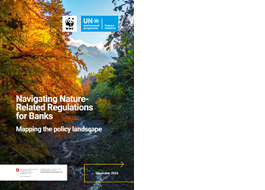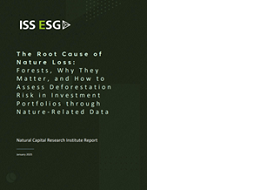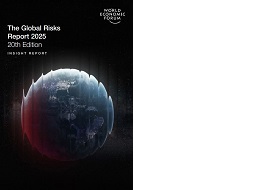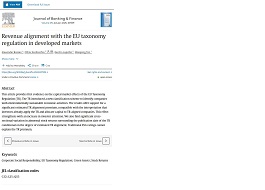| |
|
|
| |
|
|
| |
|
SSF Newsletter February 2025
|
| |
|
Navigating the Winds of Change
|
| |
|
Dear Sir or Madam,
|
| |
|
In the changing geopolitical landscape, sustainable finance faces increasing headwinds. However, as experts in this field, we witness ongoing progress despite these challenges and as ambassadors, we have a responsibility to keep pushing forward. While the new US administration may see setbacks in sustainability policies, Switzerland and Europe remain committed to international climate and sustainability goals.
What is the Swiss market telling us? Investors are not just following regulations; they see the long-term value. A recent HSLU study highlights that from mid-2023 to mid-2024, 87% of new funds from Swiss retail banks were directed into sustainable funds, with only 13% going to conventional funds. Based on these strong inflows, 56% of total fund volumes are now in sustainable investments, a clear signal of sustained interest from Swiss clients.
Nonetheless, we must not become complacent. The ongoing "Omnibus legislation" discussions to amend key regulations could either bring much-needed clarity or introduce regulatory uncertainty at a complex time, as highlighted by a coalition of key investors and associations in a public statement this week. Carefully aligning regulations can help shift focus from mere compliance to capitalizing on business opportunities. However, reducing ambitions sends the wrong signals to market actors. Businesses and financial markets need policy stability to implement sustainability regulations effectively and we must stay committed if we aim to achieve the transition fast enough.
Switzerland has chosen a more principle-based regulatory approach which leaves room to focus on material aspects. Independent of the outcome of the current revision of EU regulations, our collective mindset needs to evolve from compliance with regulation to strategic business decisions unleashing opportunities and driving tangible results. In a world where sustainability risks are turning into material physical risks, effective finance solutions are essential for transitioning to a low-carbon, resource-efficient economy. By viewing the current challenges as opportunities, we can transform necessary structural changes into valuable business prospects, maintaining momentum even amid political headwinds.
|
|
| |
|
|
Kind regards
Patrick Odier
SSF President
|
| |
|
|
|
| |
|
|
| |
| |
| |
|
SSF activities at a glance
|
| |
|
| |
|
SSF is official partner of the “AI Skills Coalition”
|
| |
|
SSF is delighted to be a Founding Contributor of the newly launch AI Skills Coalition. Launched by the United Nations Agency for Digital Technologies (International Telecommunication Union) and led by AI for Good, this initiative aims to bridge the global AI skills gap and ensure equal worldwide access to AI training. The AI Skills Coalition will serve as an online platform for AI education and capacity building, and SSF is looking forward to providing the relevant material in relation to Artificial Intelligence in sustainable finance. Read more here.
|
| |
|
|
|
| |
| |
|
Patrick Odier, SSF President named one of 10 Thought Leaders
|
| |
|
In a ranking of illuminem, a key global sustainability information and data platform, Patrick Odier, President of Swiss Sustainable Finance, and Chair of Building Bridges, was chosen as one of the top-10 thought leaders in sustainable finance. His recognition reflects his commitment to advancing sustainable finance practices and fostering collaboration among diverse stakeholders. Read more here.
|
| |
|
|
|
| |
| |
|
Sustainable Investment Market Study: Survey open now
|
| |
|
SSF is collecting data for the Swiss Sustainable Investment Market Study 2025. By providing data, you help SSF obtain an encompassing overview of the market development in this important field. If you have not received an invitation, but wish to take part in this survey please visit our website or contact us. For asset managers/banks. For asset owners (pension funds, insurers, foundations).
|
| |
|
|
|
| |
|
|
| |
| |
|
Regulatory and market news
|
| |
|
| |
|
Swiss News
European News
- 211 financial sector actors, including 162 asset owners and asset managers with more than €6.6 trillion in assets under management, supported by Eurosif, Principles for Responsible Investment and the Institutional Investors Group on Climate Change (IIGCC), have published a call to the EU to preserve the ambition and integrity of the EU sustainable finance framework. Read the press release here.
International News
Market News
- The SDG Impact Finance Initiative has its fourth call for proposals under the innovation window, focusing on economic and social inequalities with a dedicated emphasis on tackling local currency challenges. Apply by 3rd March.
- Sustainable Finance Geneva (SFG) launched the Nature Finance Hub on their website at the end of 2024. Access it to gain an overview of Nature Finance and key activities in Switzerland.
- By publishing and Engagement letter, the Asset Management Association Switzerland (AMAS) encourages Swiss companies to adopt strong corporate governance and international sustainability standards while contributing to a climate-neutral economy. To support these goals, AMAS highlights the importance of investor stewardship through active dialogue with companies and shareholder voting, as highlighted for instance in the Swiss Stewardship Code published along with SSF in 2023.
- Switzerland ranks 4th in the Global Sustainable Competitiveness Index (GCSI), which measures country-level ESG performance and serves as an alternative to GDP to assess country-specific and issue-specific risks for operators and investors and to verify progress for government agencies.
- According to a new MSCI market study, the size of the global carbon credit market remains for now limited, at around USD 1.4 billion. MSCI’s projections suggest the market could be worth USD 7 to 35 billion by 2030 and USD 45 to 250 billion by 2050.
|
|
| |
|
| |
| |
|
New SSF members and network partners
|
| |
|
| |
|
We are happy to welcome the following organisation as a new SSF member:
The full list of our members and network partners, now standing at 257, can be found here.
|
|
| |
|
|
|
|
|
| |
| |
|
SSF and sustainable finance in the media
|
| |
|
|
|
|
|

|
| |
|
Navigating Nature-related Regulations for Banks: Mapping the Policy Landscape
|
| |
|
As nature-related regulatory initiatives for banks are picking up globally, this report by UNEP FI and WWF helps make sense of these developments, and how broader policy frameworks interact. It highlights that at least 29 jurisdictions, representing over EUR 75 trillion in banking assets, have started to consider nature risk in their prudential frameworks. The report emphasizes the need for a broad coalition of actions across private and public sectors to halt and reverse biodiversity loss by 2030 and live in harmony with nature by 2050. It also offers policy considerations and case studies for government policymakers to promote coherent and effective nature-related policies for the banking sector.
|
|
More >
|
| |

|
| |
|
The Root Cause of Nature Loss: Forests, Why They Matter, and How to Assess Deforestation Risk in Investment Portfolios through Nature-Related Data
|
| |
|
The report delves into the critical role forests play in global sustainability efforts and the financial risks associated with deforestation. It highlights how tropical forests are essential for carbon sequestration and biodiversity, holding around 70% of the global forest carbon sink power and home to 67% of all land-based biodiversity. Guidance for institutional investors on assessing and mitigating deforestation risks in their portfolios while capitalizing on nature-based opportunities is provided. It emphasizes the interconnectedness of biodiversity loss and climate change, urging investors to address both crises simultaneously.
|
|
More >
|
| |
|
|

|
| |
|
The Global Risks Report 2025
|
| |
|
The Global Risks Report 2025 by the World Economic Forum highlights the most pressing global risks that could impact economies, societies, and the environment over the next decade. The report identifies key risks such as climate change, geopolitical tensions, technological disruptions, and public health challenges, emphasizing the need for proactive measures to mitigate these risks. It also explores the interconnected nature of these risks and their potential to exacerbate each other, calling for multilateral cooperation and innovative solutions. The report aims to raise awareness and encourage global leaders to take action to build more resilient economies and societies.
|
|
More >
|
| |

|
| |
|
Revenue alignment with the EU taxonomy regulation in developed markets
|
| |
|
This paper explores the capital market effects of the EU Taxonomy Regulation. It provides evidence that investors already apply the Taxonomy and allocate capital to Taxonomy-aligned companies, resulting in a significant Taxonomy alignment premium. The study finds that this effect strengthens with increased investor attention and that traditional ESG ratings cannot explain the Taxonomy premium. Additionally, the research highlights significant cross-sectional variation in abnormal stock returns surrounding the publication date of the Taxonomy, conditional on the degree of estimated Taxonomy alignment.
|
|
More >
|
| |
|
|
| |
|
Would you like to find out more about recent developments in the market and members-only SSF activities? SSF-members receive access to additional resources on current developments in Sustainable Finance. Join the growing SSF member community!
|
|
| |
|
| |
|
Kind Regards
The SSF Team
|
| |
|
|
|
| |
| |
|
Already a member or partner? Make sure you are featured on our website. Get in touch with us to upload your member or network partner profile now.
Interested in joining our network of members and partners? > Learn more
|
|
| |
|
| |
|
SWISS SUSTAINABLE FINANCE
|
|
|
| |
|
|
| |
|
|
| |
|
|
| |
|
|
| |
|
|
| |









